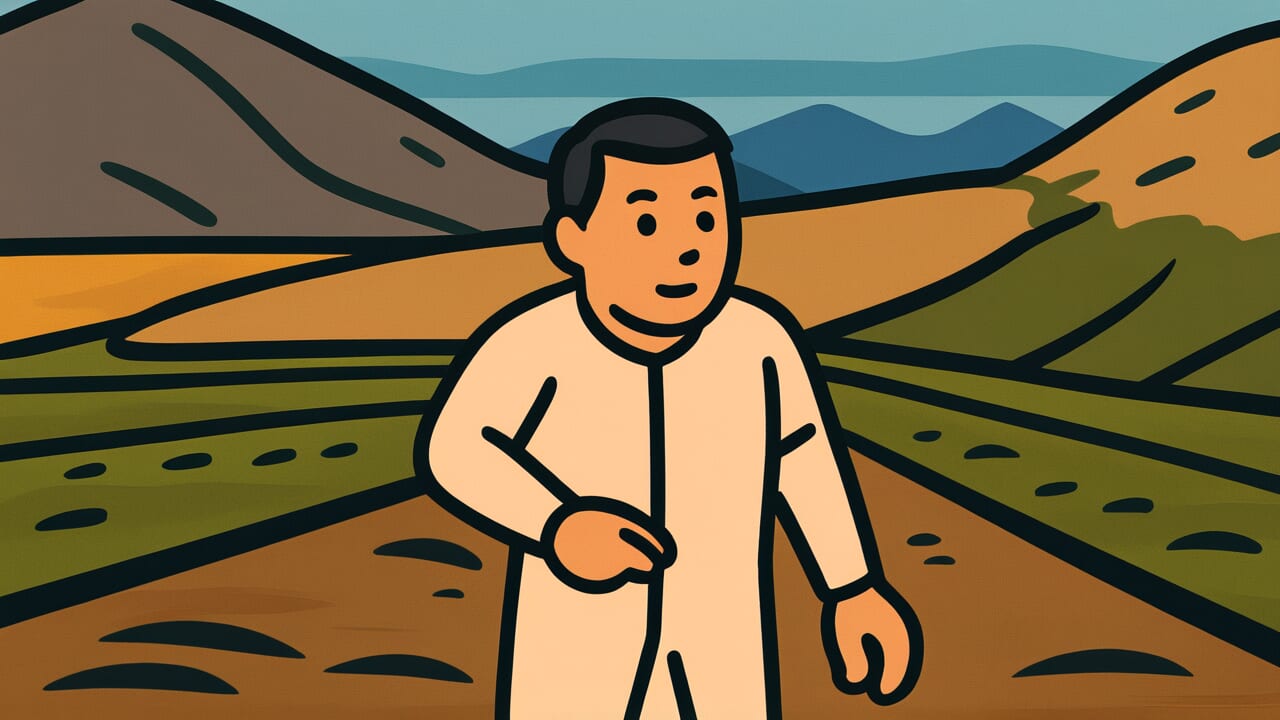How to Read “After that, let it become fields or mountains”
Ato wa no to nare yama to nare
Meaning of “After that, let it become fields or mountains”
“After that, let it become fields or mountains” is a proverb that expresses a careless attitude of not caring what happens next.
It describes someone who only focuses on what’s right in front of them. They don’t think about the results or consequences that will come later. This shows an irresponsible attitude.
This proverb captures a mindset where someone only cares about the present moment. Even if their actions lead to bad results in the future, they don’t care as long as things are fine right now.
People often use this phrase critically. It points out behavior that lacks planning, doesn’t consider cleanup, or abandons responsibility for the future.
In modern times, this saying applies to many situations. Reckless spending, quick-fix solutions, and poor handoffs to successors all fit this pattern.
The proverb sharply captures people who don’t take responsibility for their actions. They leave the aftermath for others to deal with. It’s based on keen observation of human nature.
Origin and Etymology
The exact origin of this proverb isn’t clearly documented in historical texts. However, we can learn a lot from how the phrase is constructed.
The expression “let it become fields or mountains” describes what happens to land when people stop caring for it. It becomes wild and overgrown.
In old Japan, rice fields and gardens stayed beautiful and productive only through careful human management. People tended them with great care.
But when people abandoned this management, things changed quickly. Weeds would grow everywhere. The land would return to wilderness, becoming like wild fields or mountains.
The phrase “after that” at the beginning adds an important meaning. It expresses the attitude: “As long as this moment is good, I don’t care if everything falls apart later.”
This expression likely emerged from everyday life during the Edo period. People back then understood human weakness very well.
They saw how people, driven by immediate difficulties or desires, would act without thinking ahead. The image of well-maintained fields turning into wasteland was powerful.
It provided a clear, visual metaphor for the results of irresponsible behavior. Everyone could picture it easily.
The proverb also carried a warning. It cautioned people against such irresponsible attitudes.
Usage Examples
- He’s quitting after the project ends, so with an “after that, let it become fields or mountains” attitude, he didn’t even create handoff documents
- Living by “after that, let it become fields or mountains” and borrowing money just to enjoy today will inevitably lead to ruin
Universal Wisdom
The proverb “After that, let it become fields or mountains” brilliantly captures a fundamental human weakness. It’s our tendency to lose imagination about the future when facing immediate desires or difficulties.
Why do people act without thinking ahead? It’s because present pain or desire controls our hearts much more strongly than distant future consequences.
A small pleasure today feels heavier to us than a big loss tomorrow. This is how our minds work.
This proverb has been passed down through generations because this human weakness never changes. Ancient people and modern people alike have repeated the same mistake.
They jump at immediate benefits without considering what comes after.
What’s interesting is how people use this saying. Most don’t use it to justify their own behavior. Instead, they use it to criticize others’ irresponsibility or as a warning to themselves.
This means people know this weakness exists within them. Because they recognize it, they’ve turned it into words to warn each other.
Our ancestors deeply understood human nature. They left us this proverb as wisdom for facing our own weaknesses.
When AI Hears This
Making a room messy is easy, but cleaning it requires much more energy. This asymmetry is the law of entropy that governs the universe.
In physics, entropy measures disorder in a closed system. It always increases over time and never decreases naturally.
A cup can break into pieces, but pieces never spontaneously reassemble into a cup. This is called the irreversibility of time.
The attitude of “after that, let it become fields or mountains” actually aligns perfectly with this physical law. Maintaining or repairing something requires injecting energy from outside to intentionally decrease entropy.
In other words, keeping order requires constant effort. If left alone, things naturally collapse. This attitude follows the flow of the universe and minimizes energy consumption. It’s actually a strategic choice.
Interestingly, the same pattern appears in human society. Organizations left unattended inevitably become dysfunctional. Human relationships grow distant without maintenance.
Abandoning cleanup is simply choosing the path of least resistance, physically speaking. While morally this attitude deserves criticism, from an energy efficiency perspective, it’s quite rational.
Human irresponsibility contains a strange alignment with fundamental principles of the universe.
Lessons for Today
This proverb teaches modern people the importance of imagining how far our actions reach. Our choices have wider and longer-lasting effects than we think.
In modern society, we face responsibility for “what comes after” in every situation. Social media posts, environmental considerations, work handoffs—all require thinking ahead.
Globalization and digitalization have made the ripple effects of single actions bigger than ever before.
That’s why we should develop a habit of looking beyond immediate pleasure or profit. Try imagining six months ahead, a year ahead, or even the next generation.
This isn’t about living rigidly. Actually, taking responsibility for your actions brings fulfillment. Being trusted brings joy. These satisfactions run much deeper than momentary pleasures.
Your choice today might lead to someone’s smile tomorrow. Not “after that, let it become fields or mountains,” but “thinking about what comes after.”
This small difference in awareness can transform your own life and the world around you for the better.



Comments